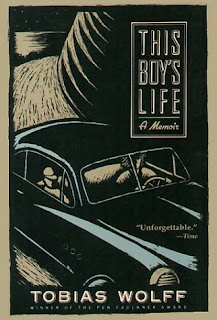
I'll be taking a long New Year's weekend so my posts will be minimal until next Monday. In the meantime I might as well jump on the bandwagon and reveal to you some of my favorite things in 2008...
BEST BOOKS

1) 2666 is beyond categorization and, without doubt, the best most ambitious novel published in 2008. What is it about? All sorts of things. It's main thrust - there's a small town on the U.S.-Mexico border and hundreds of young factory workers have disappeared there. I certainly don't like throwing the word "genius" around very much since it's lost all its definition with every famous person who dies (Heath Ledger - genius! Paul Newman - genius! Isaac Hayes - genius!), but Chilean-born novelist Roberto Bolaño (who died in 2003) comes mighty close.

2) Daring to Look: Dorothea Lange's Photographs and Reports from the Field is a marvelous book highlighting the photographic works and words of my favorite photographer, Dorothea Lange. Her photographs are terrifically powerful, many of them portraits of people struggling during the Great Depression. Her most famous portrait is, of course, Migrant Mother.
3) The Economist Book of Obituaries is just great. Having been an obituary writer for the Seattle Times for a short while, I've always enjoyed a good obituary. It's not morbid in the slightest! And, further more, The Economist writes the best obituaries on the planet. The stories aren't in the least bit dry and you learn all sorts of fascinating things about heart transplants, dictators, novelists, firefighting, and much much more.
BEST WEBSITES & BLOGS DISCOVERED

1) Executed Today. Certainly, a bit morbid but each day they reveal a bit about history that you never knew before.

2) The Big Picture. A simple concept with simply great images. The Boston Globe posts giant beautiful photographs, on a wide variety of news-worthy topics, for all to enjoy.

3) Garfield Minus Garfield. The Garfield comic strip is lame. Remove Garfield though, hilarity ensues!
BEST ALBUMS

1) Frightened Rabbit's album The Midnight Organ Fight.
Them singing "Old Old Fashioned":
2) Hey Marseilles's album To Travels and Trunks.
Them singing "Stations":

3) Shearwater's album Rook.
Them singing "Palo Santo":
Have a wonderful New Year, dear readers. Until then...











































